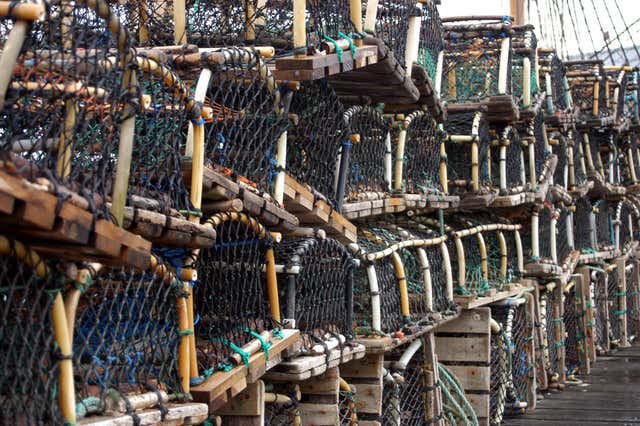Sewage and seismic activity ruled out in inquiry into thousands of crab deaths
Experts have ruled out sewage, seismic activity or underwater cables as the cause of thousands of crabs and lobsters washing up dead on North Sea beaches.
Environmental organisations have joined forces to investigate why so much marine life has been found on the coast around Teesside this month.
The inquiry was a “top priority”, the Environment Agency said, amid concern from the public about what was happening to local sea life.
The Centre for Environment, Fisheries and Aquaculture Science (Cefas) is completing a series of highly complex tests to identify whether any contaminants or signs of disease can be identified in samples of water, crab and sediment.
The Environment Agency said possibility of the deaths being caused “by sewage, seismic activity or underwater cables” has been ruled out.

Hannah Westoby, senior marine monitoring officer for the Environment Agency, said: “We understand how distressing the sight of dead and dying marine life is on our beaches, so this investigation is a top priority for Environment Agency and Cefas laboratories.
“The Environment Agency is investigating whether a pollution incident could have contributed to the deaths of the crustaceans and Cefas is investigating for signs of disease.
“The tests being carried out by our labs are extremely complex and have to be undertaken in steps.
“We’re analysing samples of water, sediment and crab for traces of hundreds of potential contaminants, so it is taking time to work through all of the possibilities.
“We’re continuing to collect further samples while we await the results.
“Our investigations have managed to rule out the likelihood of a number of possible causes, including sewage, seismic activity and underwater cables.
“Results for our water samples have come back as normal for those locations.
“There is always the possibility that this was a natural event, so we are keeping an open mind.”
Mike Gubbins, head of the Fish Health Inspectorate at Cefas, said no disease had been detected so far.
He said: “We will continue to work with partner agencies to try and find answers for the local community.”

 Yahoo News
Yahoo News 
